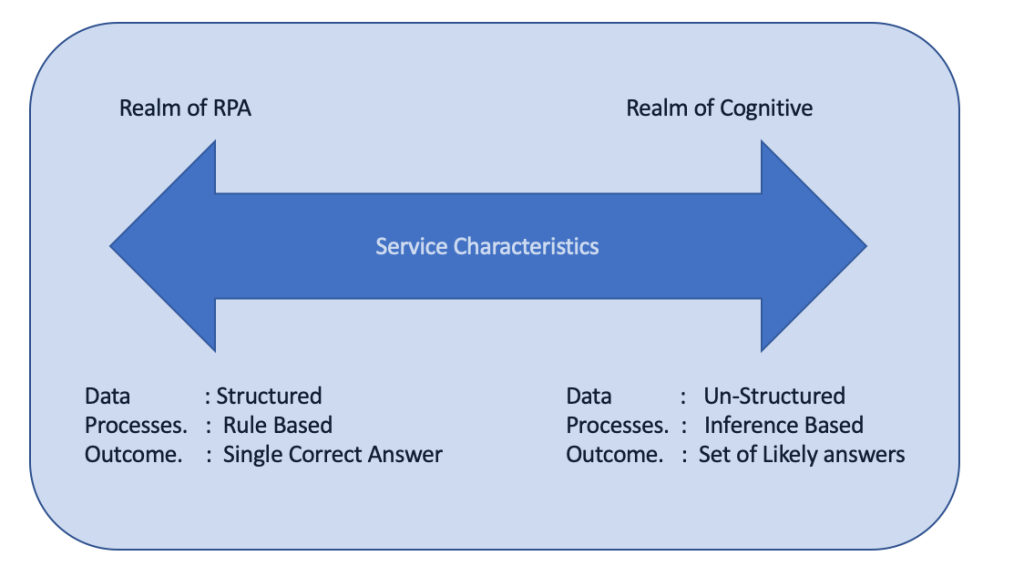Robotic Process Automation
According to a recent survey, approximately 30% of human work is spent on highly repeatable low-level tasks. These tasks are optimal targets for RPA automation. Some of the benefits that companies have realized by deploying RPA include :
- Increase productivity
- Drive operational efficiencies
- Focus on the customer
- Transform customer outcomes / enhance customer experience
- Create cost savings – Virtual workers are almost 60% cheaper
- Decrease business risk
- Optimise existing processes and systems
- Utilise human talent in better ways
- Create scalability
- Empower the business to improve
- Remove demotivating mundane tasks
Case Studies :
- Rule Based Automation
Best candidate processes to target for RPA automation :
- High volume processes
- Highly manual processes
- Repetitive tasks
- Rules-based tasks
- Low exception processes
- Stable processes
- Low complexity processes
Use cases for RPA :
- Data entry across multiple systems
- Rules based processing of data from multiple systems
- Virtual “integration” of different systems
- Rules based tasks and decision-making: e.g. transaction processing, reporting and ad-hoc data requests

Use cases for Cognitive/ Smart automation
- Procurement : Discovering mismatches between contracts and invoices
- Insurance : Claims processing
- Customer Service : Omnichannel support – 360 degree customer view
Case Studies :
- Process Re-engineering & Workflow automation
- Mitigation of Financial Risk Through Intelligent Automation
Smart Process Automation
RPA delivers significant benefits by automating well defined tasks , operating with structured data and rule based decision making. However, 80% of all data is unstructured with majority of decision inference based thereby restricting the process that can be automated using RPA.
Cognitive/ Smart automation is a subset of AI that more closely emulates human abilities. It allows automation solutions to perform tasks and process unstructured data that traditional RPA can’t handle. This massively expands the capabilities of RPA, allowing companies to implement automation in more areas and see significant productivity gains.
Key capabilities of Smart process Automation :
- Natural language processing (NLP) – Understanding Verbal and written communication
- Optical Character Recognition (OCR) – Extracting data from invoices , documents
- Machine learning: Inference based decision making
